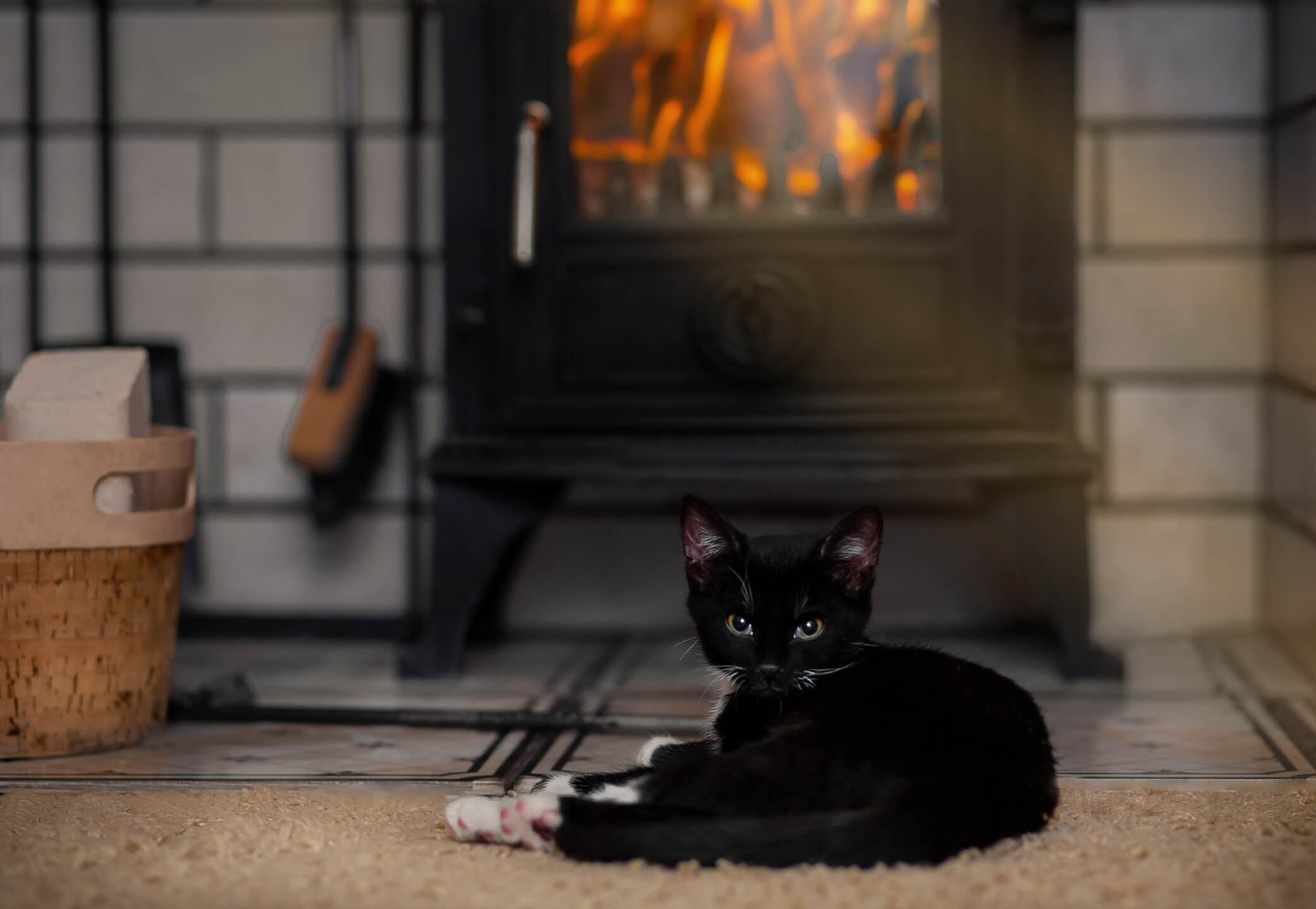
Why Might Pet Allergies Get Worse in Winter?
Owners typically assume their pet’s seasonal allergies will fade away along with the grass and flowers. But for some unlucky pups and cats, winter means their allergies have just begun! Spring and summer bring high pollen counts, but the cold months increase your pet’s exposure to indoor allergens like dust, mold and household chemicals.
Below are several other reasons why your furry friend is sneezing and itching their way through winter.
Winter makes indoor allergens more present
As the weather turns chilly, people and pets spend most of their time in the home. The cold months can offer some much-needed reprieve for pets who suffer from environmental allergens such as pollen, grass and pollution. However, not all pets are the same. While some get allergic reactions from outdoor substances, others develop allergy symptoms from substances circulating in their living space.
Pets who are allergic to dust, mold and chemical cleaners may experience worse symptoms during winter. That’s because all the windows and doors are shut to seal in the heat. This creates a lack of fresh air that would otherwise help circulate allergens out of the home. Instead, an airtight living space increases the volume of dust, mold spores and debris that gets trapped in your allergic pet’s environment.
Your furnace could also be to blame! Once the temperatures drop, furnaces kick into high gear. What many homeowners don’t realize is that air ducts accumulate airborne allergens like dust and debris. Furnaces make environmental allergies worse by pumping these airborne allergens throughout the entire home. To make matters worse, pet parents often forget to change the furnace’s air filter. Old, dirty air filters contribute to unhealthy indoor air quality.

Common triggers for winter allergies
Pets react to allergens in different ways. A certain brand of cat litter might be fine for some feline friends but intolerable for others. The only way to know what’s triggering your pet’s seasonal allergies is to have your vet conduct an allergy test.
If their allergies are worse in the winter, there’s a good chance your furry friend is allergic to one of the following:
- Dust: Dust is an ever-present allergen in all homes. It exists in your pet’s environment all year long. What makes it more noticeable during winter is the fact that pets are spending a lot more time indoors to escape the cold. A combination of turning on the furnace and shutting the windows increases the volume of dust your pet breathes in in the winter.
- Mold spores: Similar to dust, mold spores are a lot more prominent during the cold months. Mold grows in hidden places where most people don’t bother to look. Mold spores might be out of sight, but your sneezy pup will let you know they’re growing somewhere in the house!
- Household chemicals: Winter doesn’t necessarily mean pet parents are using more perfume, cleaning products and air fresheners. These household chemicals are simply more prominent in winter because there’s no fresh air pulling them out of the home. Airborne allergens get stuck indoors where they continue to accumulate throughout the cold months.
- Low humidity: Dry air isn’t an allergen, but it certainly aggravates seasonal allergy symptoms. The air becomes much drier in the cold months, both outside and in the home. Low humidity causes dry, itchy skin both for pets and humans. The extra dryness can worsen skin irritation that’s already present due to other environmental factors.
How to relieve your pet’s allergies in winter
People and pets may be stuck indoors, but that doesn’t mean they have to endure winter allergies. Follow these tips to help your allergic pet breathe easy this holiday season.
- Set up a humidifier: You can counteract the dryness of winter by installing a humidifier in your home. This should help minimize skin irritation and lubricate the air passages. For best results, set your humidifier to about 40 percent humidity. Place it in the room where your pet spends the most amount of time.
- Replace the air filter: Furnace air filters are supposed to be replaced once every few months. This ensures it can properly remove airborne allergens from your living space. Also, consider switching to a high-efficiency particulate air (HEPA) filter. These are highly recommended for people and pets with winter allergies because they capture a larger volume of dust, mold and debris.
Pet parents should understand that it’s impossible to fully eliminate certain allergens from an indoor environment. However, taking care of your home puts you on the right path toward alleviating your pet’s allergy symptoms. Speak with your vet for additional advice on how to help your furry friend navigate this time of year.


